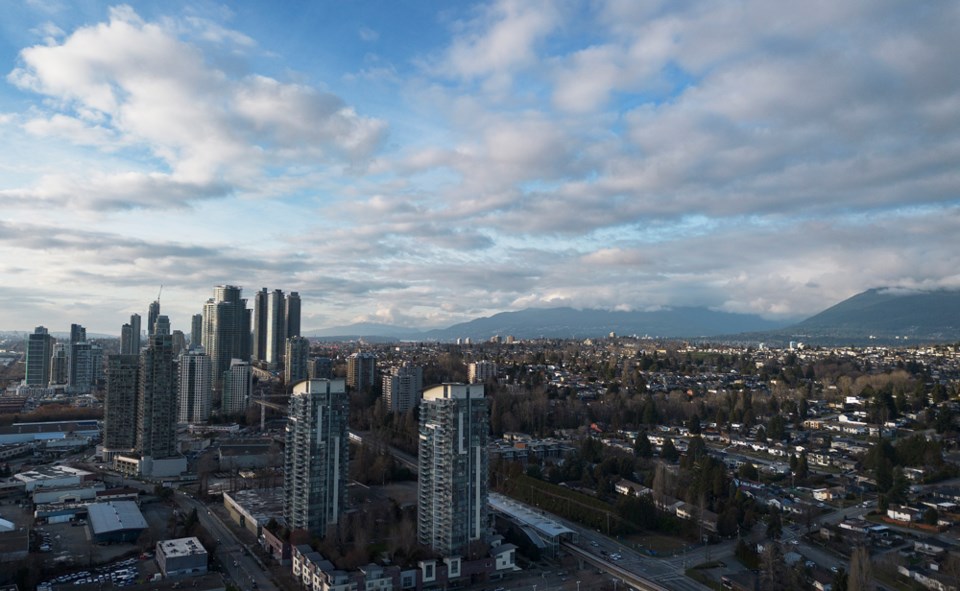B.C.’s new housing legislation is expected to accelerate development around the province – but that could also mean accelerating evictions, according to a Burnaby city councillor.
NDP-aligned Burnaby Citizens Association Coun. Alison Gu now wants to ensure local renters in “secondary market rentals,” those that are owned by individuals and rented out to a tenant as opposed to purpose-built rental apartments, are protected from displacement due to development.
The City of Burnaby has already adopted what has been hailed as the best tenant assistance policy in Canada, including the renter’s right of first refusal at the rent previously paid, rent top-ups for interim housing and moving costs covered by the developer.
But the policy has gaps.
Those protections are only available to renters in purpose-built rental apartments and some secondary market rentals (those in buildings with fewer than five units that are being consolidated into a larger development).
Gu said the policy effectively creates “a tier of renters” dividing those who live in purpose-built rentals with access to support throughout development and the secondary-market renters who don’t have those protections.
She said secondary market renters could be at “a higher risk” of eviction due to the new provincial housing legislation introduced by the NDP government last December which will allow up to six units on previously single- and two-family home lots, as well as buildings between eight and 20 storeys within a certain radius of a SkyTrain station.
She said most Burnaby renters, who make up 40 per cent of the city’s residents, live in “precarious” secondary market rentals that are owned by individuals with the right to redevelop their property or sell it for redevelopment.
“That means that these tenants are exposed to a lack of security, and inability to necessarily plan their futures in Burnaby,” Gu said at a council meeting April 29.
There were a little more than 22,400 households (64.1 per cent of renter households) renting in Burnaby’s secondary rental market in 2016, according to the city’s 2021 housing needs report.
Those homes included rented strata apartments and townhomes, legal secondary suites, in-law suites and unauthorized secondary suites.
Gu said the new provincial legislation “may negatively impact renters” including tenants who live in:
- Stratified apartment units
- Basement/secondary suites
- Older single-family homes
She said these tenants should have access to support if displaced due to development and added it’s not just provincial zoning changes that could put Burnaby renters at risk, but also the city’s recently adopted Lochdale community plan and the draft Edmonds Town Centre plan.
She motioned for staff to research and implement policies that equalize treatment of renters across the city and protect tenants from eviction due to development in secondary rentals citywide.
Gu’s motion was unanimously approved by council, though two BCA councillors warned staff not to create more difficulties when it comes to basement suite rentals.
Council discussion
Coun. Sav Dhaliwal said he didn’t want to create a policy for tenants that would end up prohibitive to building or renting basement or secondary suites.
He said residents have called the permitting process for basement suites “very cumbersome” which has meant people not wanting to build or rent their suites.
Dhaliwal also asked whether the policy would include single-family homes redeveloped as “small-scale multi-use homes,” which are the multiplex options soon to be allowed on previously single-family lots.
General manager of planning and development, Ed Kozak, said staff will first analyze the issues.
“The motion certainly identifies a gap, perhaps, in our tenant assistance policy, but we need to understand where the vulnerabilities are, and we would respond in our policy to those specifically,” Kozak said and added, “The policy would be driven by the evidence and data that we uncover.”
OneBurnaby Coun. Richard Lee asked if the tenant assistance funding for secondary market rentals would come from the city or developers.
Gu said staff would conduct economic analysis to inform their recommendations and said the result might not mean tenants who live in secondary suites or single-family homes get the exact same supports as tenants who live in denser areas.
She suggested the current tenant assistance policy works because the city would negotiate with developers and allow them to build more, denser housing in order for them to be able to pay for the tenant support.
She said now that the province has increased housing density on lots by right, an updated tenant assistance policy could take some of that density that was “handed from the provincial government to homeowners and developers by right” and share its value with the community.
Gu’s motion also comes alongside the province’s Bill 16, which will allow cities to require developers to provide added support for tenants facing displacement in cases of redevelopment.
Staff will report back at a later date and take their analysis into consideration in their work on the 2024 housing needs report.






